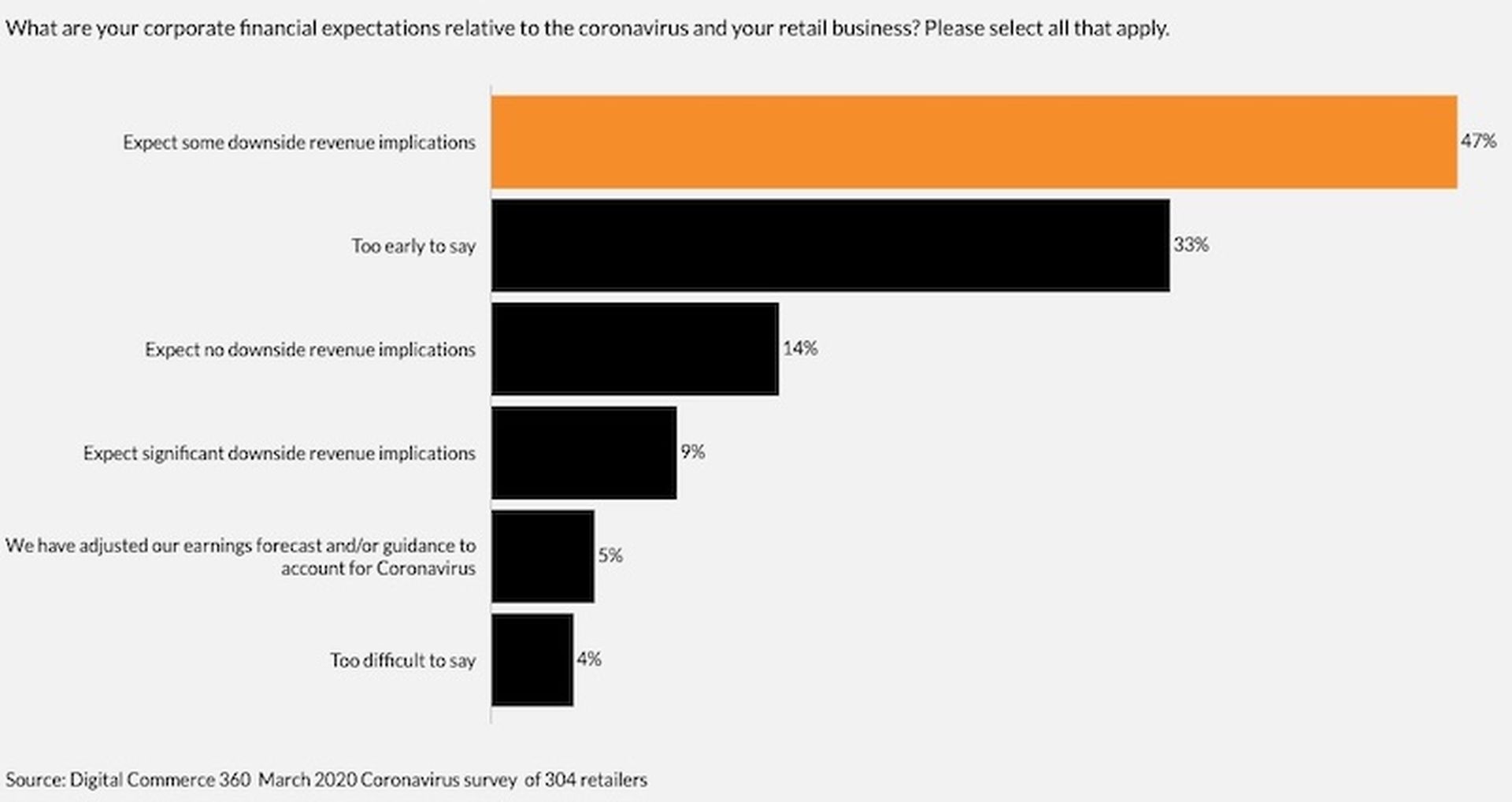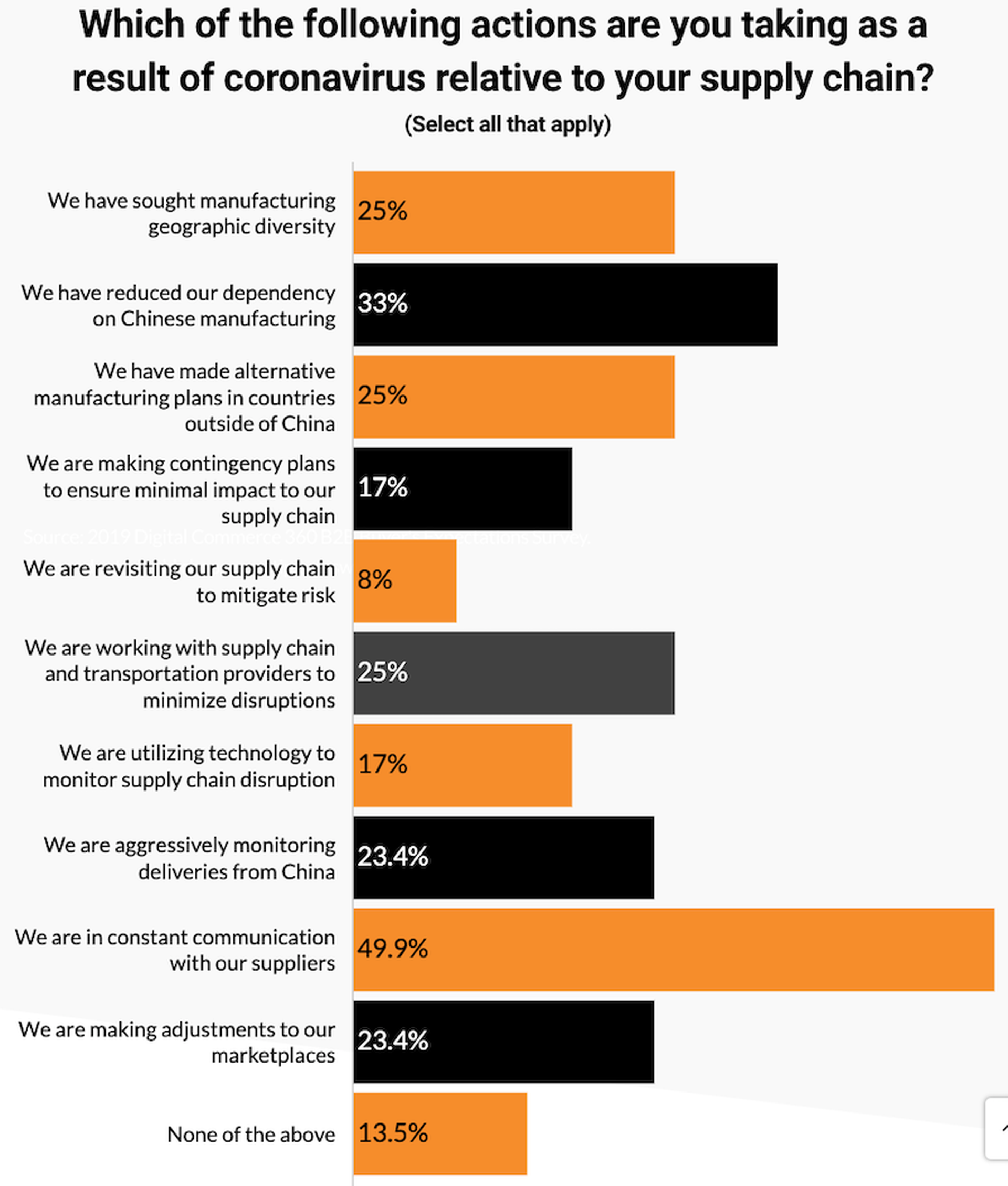Amid the coronavirus pandemic, more than half of retailers expect revenue to fall in the near term, according to a Digital Commerce 360 survey of 304 retailers in early March 2020. A separate survey from the same company reveals revenue concerns in the B2B e-commerce market.
Still, there's a potential silver lining: MSPs and IT solutions providers that specialize in supply chain monitoring and management tools could be well-positioned to help retail businesses through the pandemic, ChannelE2E believes.
U.S. Retail Revenue Concerns
What's the state of the retail vertical? No doubt, it varies day to day -- and region to region -- based on the pandemic's spread. But as of early March 2020, 47 percent of retailers expected some downside revenue implications, and 9 percent see significant revenue downside implications.
Here's a closer look at those data points:

U.S. B2B E-Commerce Also Faces Revenue Pressures
At first glance, B2B e-commerce sellers are better positioned to withstand the pandemic since they don't have to worry about brick-and-mortar store traffic declines.
But take a closer look at another DigitalCommerce 360 report, and you'll see e-commerce companies also are concerned about the pandemic's potential business impact:
 Source: March 2020 Digital Commerce 360 B2B survey of 50 B2B e-commerce executives.
Source: March 2020 Digital Commerce 360 B2B survey of 50 B2B e-commerce executives.More than 80 percent of B2B e-commerce companies expect some (58%) or significant (25%) downside revenue projections, according to a March 2020 survey of 50 B2B e-commerce executives.
Vertical Market MSPs in Retail: Next Moves
Amid those data point, MSPs serving the retail vertical and other impacted verticals should immediately make these business changes, ChannelE2E recommends.
Moreover, MSPs that specialize in supply chain management and related analytics tools could be well-positioned to help retailers through the pandemic, ChannelE2E believes.
Indeed, only 17 percent of B2B e-commerce companies are taking new steps to utilize technology to monitor their supply chains -- as shown in the chart below.

U.S. Retail: Growing Worse, Then Better?
ChannelE2E suspects the Digital Commerce 360 survey results don't quite reflect the current mood of retailers -- especially as the pandemic surges in such areas as New York, New Orleans, California and Washington, D.C., among other areas, as of this article's publication date (March 27, 2020).
Although President Donald Trump is hopeful that the U.S. economy can "re-open" by Easter (April 12), the pandemic may not reach its peak in some U.S. geographies until after that point, federal government health care advisors say.




